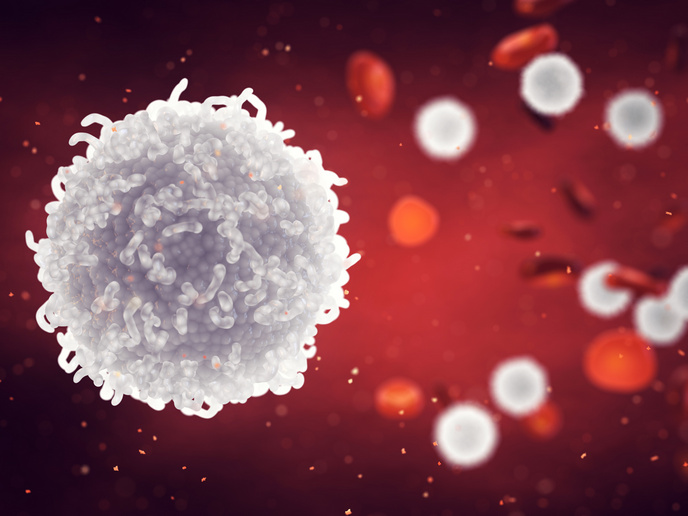Decoding B cell signals for better leukaemia treatment
B-cell chronic lymphocytic leukaemia (CLL) is a prevalent and challenging form of cancer, characterised by the uncontrolled growth of B lymphocytes, the cells that produce antibodies to fight infections. Typically, each B lymphocyte expresses a unique B cell receptor (BCR) on its surface which recognises and binds a specific (foreign) antigen. Under normal circumstances, the BCRs on different B cells are highly diverse. However, a significant subset of CLL patients has B cells with stereotyped BCRs that share highly similar or even identical antigen-binding regions. This points to a possible role of specific antigens in the initiation and progression of the disease and hints at the idea that CLL could be a clonal disease driven by chronic stimulation of B cells by specific antigens.
Insight into the role of the BCR in CLL
Undertaken with the support of the Marie Skłodowska-Curie Actions (MSCA) programme, the BCRES-CLL project aimed to unravel the role of the BCR in CLL onset and progression. “A better understanding of how the BCR works in this disease could lead to new treatments, with fewer side effects and less resistance than current options,” explains project coordinator Franco Fais. Researchers stimulated healthy cells from normal donors and leukaemic ones from CLL patients under conditions that mimic the activation of the BCR in vivo. They then measured key biological markers including the immunoglobulin moiety of the BCR, cell proliferation and migration. Moreover, they identified genes involved in this process which could potentially be exploited for the development of novel therapies. Project findings indicated that the role of the BCR immunoglobulin varies during the life cycle of the leukaemic cell with different impact on cell survival and growth. Ongoing investigation on the underlying mechanism will help understand how the BCR induces cellular proliferation and increases the acquisition of new mutations associated with treatment resistance.
Improved disease staging
CLL disease staging is a critical aspect of managing and treating the disease. There are two global staging systems for CLL: the Rai staging system and the Binet staging system. These systems stratify patients based on clinical and laboratory findings such as lymphocyte count, lymph node involvement, spleen and liver enlargement, and anaemia or low platelet count. However, as the understanding of CLL evolves, molecular and genetic markers are needed to provide a more comprehensive assessment of the disease and its likely course. As MSCA research fellow Andrea Mazzarello explains: “CLL is a very heterogeneous disease, with some patients requiring treatment at diagnosis whereas others do not need treatment for years. Moreover, those undergoing therapy can develop resistance through very different mechanisms.” The BCRES-CLL team developed machine learning algorithm and computational tools to specify associations between biological and clinical parameters. Using this technology, patients were classified in subgroups based on their BCR immunoglobulin isotype, which can influence how the CLL cells respond to external signals. “Our machine learning technology holds significant promise for clinical practice as it can help the identification of disease-progression parameters. This could lead to the development of novel drugs targeting these critical genes or molecules,” emphasises Fais. Long term, as the number of biological and clinical data increases, this technology could become a prognostic tool for routine clinical practice, predicting both disease progression and the most effective therapy for each patient.
Keywords
BCRES-CLL, treatment, immunoglobulin, machine learning, B lymphocyte, B cell receptor, chronic lymphocytic leukaemia



